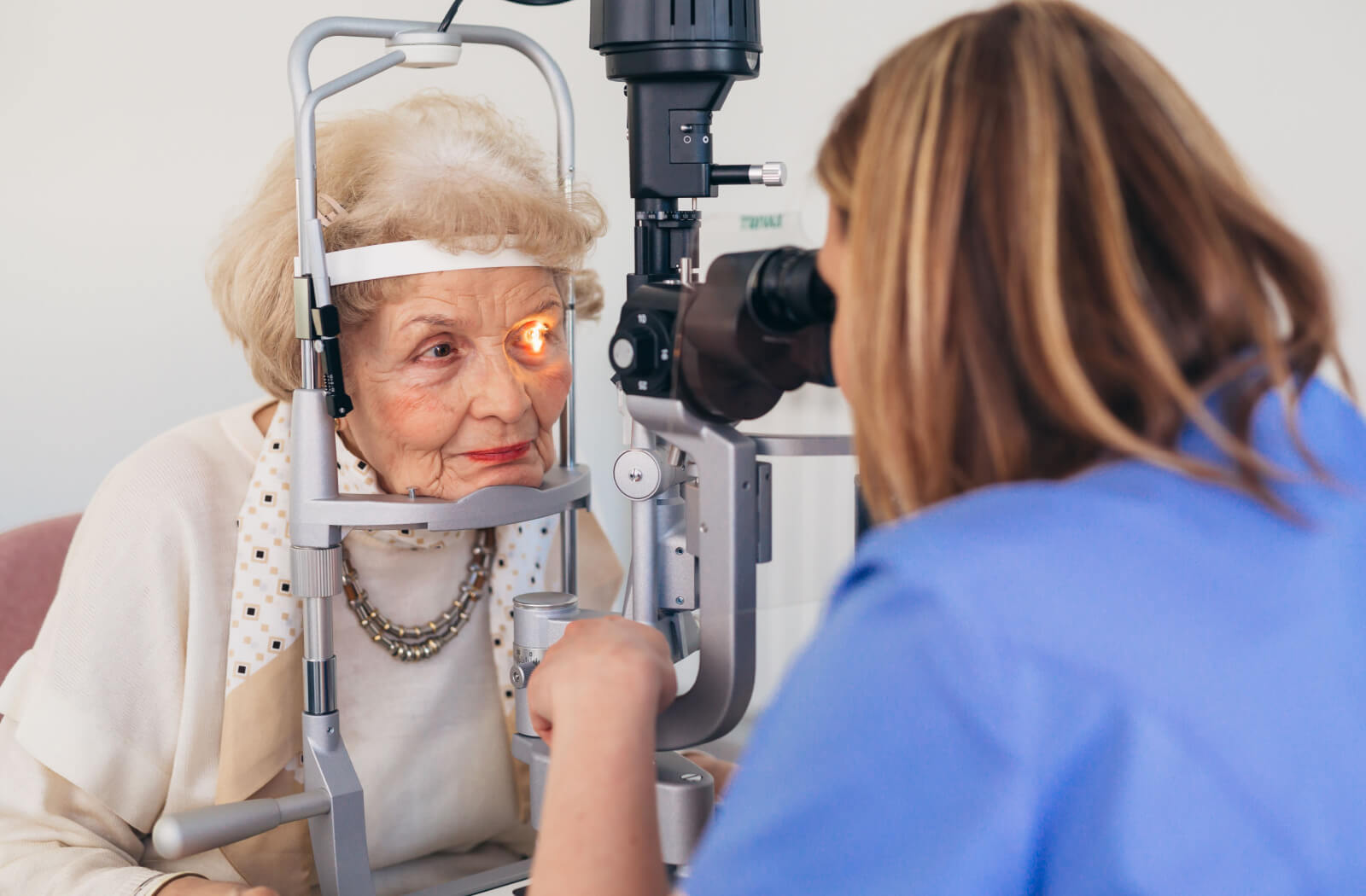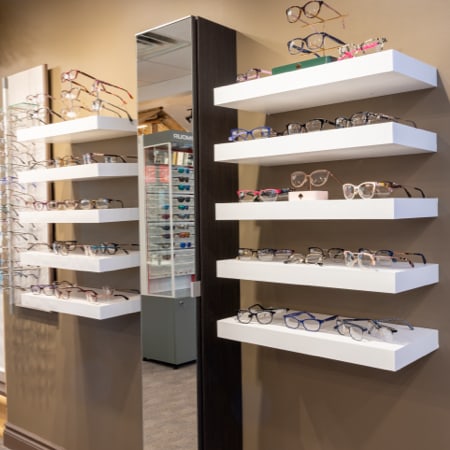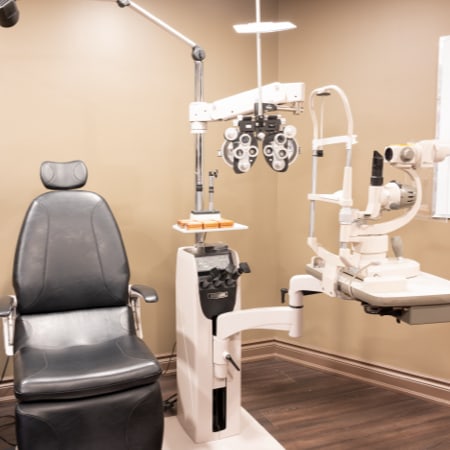Macular degeneration, commonly called age-related macular degeneration (AMD), is a common eye condition that typically develops in your senior years. As this condition progresses, it can lead to the loss of your clear central vision, making it essential to visit your optometrist for eye exams regularly. But what are the early warning signs of this condition?
Macular degeneration typically does not cause noticeable early symptoms until you experience changes to your vision.
When AMD develops, the symptoms can start small with occasional blurry or distorted vision before progressing to difficulty seeing in low-light conditions. As AMD gets worse, it can cause black spots in your vision. In late stages, AMD can weaken how clearly you see colours and cause straight lines and edges to appear wavy before causing total central vision loss.
Because AMD and other age-related eye conditions often have no noticeable early symptoms, it’s often essential that seniors get an eye exam every year to detect and manage vision-threatening conditions during their early stages.
What Is Macular Degeneration?
Macular degeneration is a common eye condition that primarily affects people over the age of 55. It can cause damage to the macula—the small central portion of the retina responsible for sharp and clear central vision.
There are 2 common types of macular degeneration:
- Dry macular degeneration, where the retina begins to thin over time. This accounts for most cases of AMD.
- Wet macular degeneration, where abnormal blood vessels grow under the retina and cause serious long-term damage to your vision. This type of AMD is much rarer than dry AMD and can cause more serious symptoms.
Because macular degeneration often develops during a person’s senior years, it’s commonly called age-related macular degeneration, or AMD for short. This condition is considered progressive, meaning that symptoms will continue developing if it’s left untreated or undiagnosed.
Symptoms of Early Macular Degeneration
The early warning signs of macular degeneration can be subtle and may not be immediately noticeable until AMD affects your vision. The following signs may be a sign that it’s time to visit your optometrist to get checked for AMD:
- Blurry vision or a slight distortion when you’re trying to focus on a straight line
- Difficulty adjusting to low-light conditions
- Foggy or hazy spots in your central vision
If you’re trying to recognize a face, read a book, or work on a highly detailed task, you may notice that you’re having trouble seeing details clearly. Changes to your central vision can be an indicator that you’re beginning to develop AMD. In some situations, you may notice that colours are becoming less vibrant or bright.
If you notice these symptoms, you should visit your optometrist for an eye exam.
Symptoms of Progressing Macular Degeneration
As AMD progresses, the symptoms can become more severe. In intermediate stages of macular degeneration, you may notice:
- Your central vision becoming worse
- Straight lines appearing wavy, distorted, or bent
- Some objects appear smaller than they should
- Dark spots in your vision
- Trouble discerning the difference between colours
These symptoms are indicators that your macular degeneration may be progressing. It’s important to remember—AMD can get worse if you leave it untreated.
Because AMD often affects people over the age of 55, seniors should visit their optometrist at least once a year for eye exams so they can be checked for AMD. In AMD’s early and intermediate stages, we can recommend treatments to reduce how quickly it progresses and help preserve your vision.
How Is Macular Degeneration Prevented?
While there is no cure for macular degeneration, you can make some slight adjustments to your daily life that may help reduce how quickly symptoms progress.
The habits that help prevent AMD include:
- Following a healthy diet rich in green leafy vegetables
- Exercising regularly to promote your overall health
- Managing your blood pressure and cholesterol
- Avoiding tobacco
- Protecting your eyes from UV light
It can be particularly helpful to visit your optometrist regularly for comprehensive eye exams. During these checkups, we can monitor the health of your eyes, make note of any potential changes, and give you up-to-date advice on treating your macular degeneration and keeping your eyes healthy.
What Happens If You Don’t Treat Your Macular Degeneration?
Age-related macular degeneration, whether dry or wet, can lead to significant vision loss over time. If you leave AMD unaddressed, it often leads to:
- Progressive central vision loss
- Difficulty navigating your everyday life as reading, recognizing faces, driving, and watching TV become more difficult
- Blurry vision
- Black spots in your vision
If you’re diagnosed with wet AMD, these symptoms may be worse and may progress quickly. With wet macular degeneration, the eye begins developing new blood vessels around the retina, which can begin leaking and causing significant vision problems.
In some situations, you may even begin experiencing mild hallucinations as your brain attempts to fill in the gaps in your vision with things it believes should be there. While this isn’t common for everyone affected by AMD, it is a possibility.
Speaking with us during your eye exams can be an opportunity to ask questions about what to expect from AMD and how it may affect your everyday life.
Where to Get Help for Macular Degeneration
If you or a loved one are experiencing any signs or symptoms of macular degeneration, it is crucial to seek help from your optometrist. At Orillia Optometry, our team of experienced optometrists is ready to provide comprehensive eye examinations and personalized treatment plans for macular degeneration.
Book an appointment with us today to speak with one of our caring team members!















